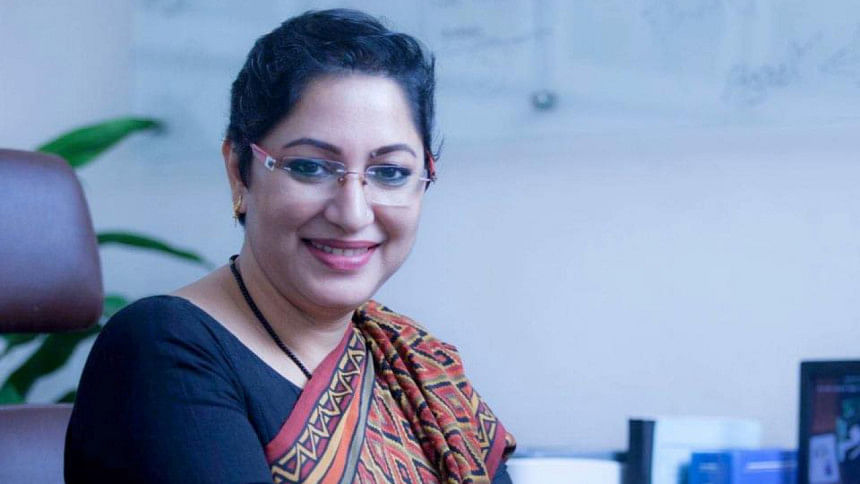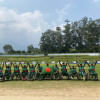Honouring Sajida Rahman Danny and the PFDA Vocational Training Centre

As Mother's Day approaches, we honour the women who have shown us love, strength, and resilience. Sajida Rahman Danny epitomises these qualities in her work empowering young adults with neurological disorders in Bangladesh. As founder and director of PFDA Vocational Training Centre, she provides skills training and opportunities to those who might otherwise be marginalised. Her efforts have changed countless lives and serve as a testament to a mother's love and determination to make a difference.
Who is Sajida Rahman Danny?
Sajida Rahman Danny herself is a mother of a son with special needs. Her son, Seeam Ul Karim was diagnosed with autism spectrum disorder (ASD), and attention deficit hyperactivity disorder (ADHD) at the tender age of two and a half years. He had exhibited a limited attention span of only 2.5 seconds, reduced sensory and motor skills, and communication issues. After diagnosis, the uphill battle began for the mother.
About 30 schools rejected Seeam and the one school that took him in faced resistance from the parents of the other children. He was abused and bullied in school. On the other hand, Danny's parenting was blamed for her son's autism. Despite facing these antagonistic and discriminatory attitudes across society, she never gave up on her son and assisted in his development relentlessly.
How did PFDA Vocational Training Centre into being?
Back in 2011, when Saima Wazed Putul, daughter of our Prime Minister Sheikh Hasina organised the South Asian Conference on Autism in Dhaka, Danny Rahman was given the responsibility to represent the parents of children with neurodevelopmental disorders (NDD). It is at that time she realised that there are thousands across the country who share a plight similar to hers. Hence, began the journey of the Parents Forum for The Differently Able (PFDA) in a small room at the Bangabandhu Sheikh Mujib Medical University (BSMMU).
"While raising my son, I realised that children with special needs need to be prepared and trained in their areas of interest and talents so that once they reach adulthood they can be self-reliant and not be treated as a burden in society," said Danny.
She left her job at UNICEF, sold her property and started the PFDA Vocational Training Centre in 2014 at Mohakhali DOHS in Dhaka.
What are the services of the PFDA Vocational Training Centre?
PFDA Vocational Training Centre is aimed at exploring and training young adults and adolescents with neurological disorders such as ASD, ADHD, cerebral palsy, Down syndrome, dyslexia, etc. and training them accordingly.
After assessing the candidates for two weeks, the centre prepares a personalised curriculum for the students to better suit their individualised need for support and skills training based on interest. There is an effective job placement model in place to help these students earn a steady income.
Under this job placement model, there are three pathways for graduates to employment. Sheltered employment is for skilled students who require assistance due to behavioural, sensory, or motor skill issues. Hence they work in-house at the centre under supervision. Currently, 56 graduates within the sheltered employment programme excel in skills such as painting, singing, acting, baking at the Angel Chef bakery at the centre, cooking, sewing, block printing, batik work, crafts, etc.
The wages employment programme is for graduates who can work outside and work by themselves. Under this program, around 70 graduates are now employed in various companies such as Shwapno, Transcom, and Bangladesh Parjatan Corporation, along with many hotels and restaurants.
The third pathway, namely, self-employment, is for persons with disabilities (PWD) who have special skills but are unable to communicate properly. Hence PFDA gives them the necessary support to ensure they can work from the comfort of their homes and be entrepreneurs.
The centre also offers counselling and one-to-one educational sessions for parents where the perceptions of the parents are continually changed to turn them more loving and affectionate to their children at all times.
How can society better support PWDs and their parents?
According to Danny, "Society needs to first accept and respect people with special needs. They need to accept them as part of society and respect them just like any other able-bodied individual. We need to increase transparent social support systems and put legal support measures in place to protect vulnerable mothers and children."
She further adds, "Parents need respite care (short-term break for caregivers) along with more readily available and accessible counselling support services and work around destigmatising counselling in society.''
Sajida Rahman Danny is an excellent mother not to her child, but to hundreds across the country as she continues to work tirelessly to improve the lives of children with special needs and represent them all around. This Mother's Day we salute this triumphant mother.

 For all latest news, follow The Daily Star's Google News channel.
For all latest news, follow The Daily Star's Google News channel. 








Comments